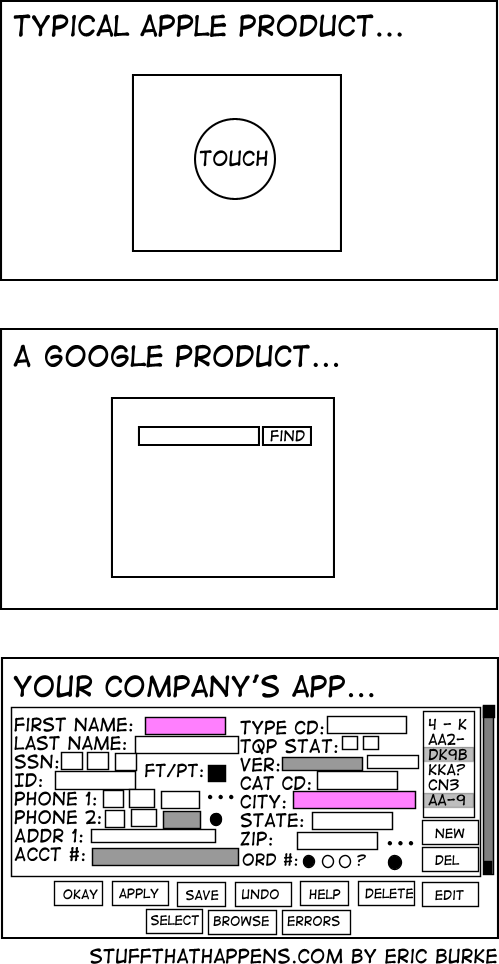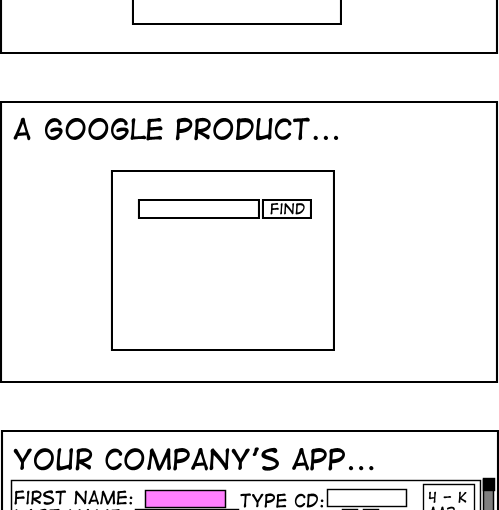Here’s a great drawing from Eric Burke (who’s site seems to be down, or I’d link there.):

Aside from being funny, this says a lot about not just products, but sales. “Your Company’s App” is complicated not because someone wants to make it complicated, but because the requirements are complicated. Sometimes, this is just because some things are complex. Often, it’s because people didn’t have clarity about the mission. Usually, it’s a combination of these factors.
When you’re an engineer doing sales and marketing, it’s easy to get sucked into the technical details. After all, you’re better at this stuff than most of the other folks in sales and marketing. Before you realize it, your sales cycle looks like the “Your Company’s App.” Too many details without clarity. The details are great, but they should come from a clear view of the overall mission.
I see too many proposals that have 10 pages of techno-jargon and no sense of what the prospect wants to accomplish, how they will measure success, or whether the vendor will be able to claim success.
Think of your sales efforts like the Google and Apple products– very simple to understand and achieve the goal, with a lot of hard work behind the scenes.
As they say, Keep It Simple, Stupid. 😉



